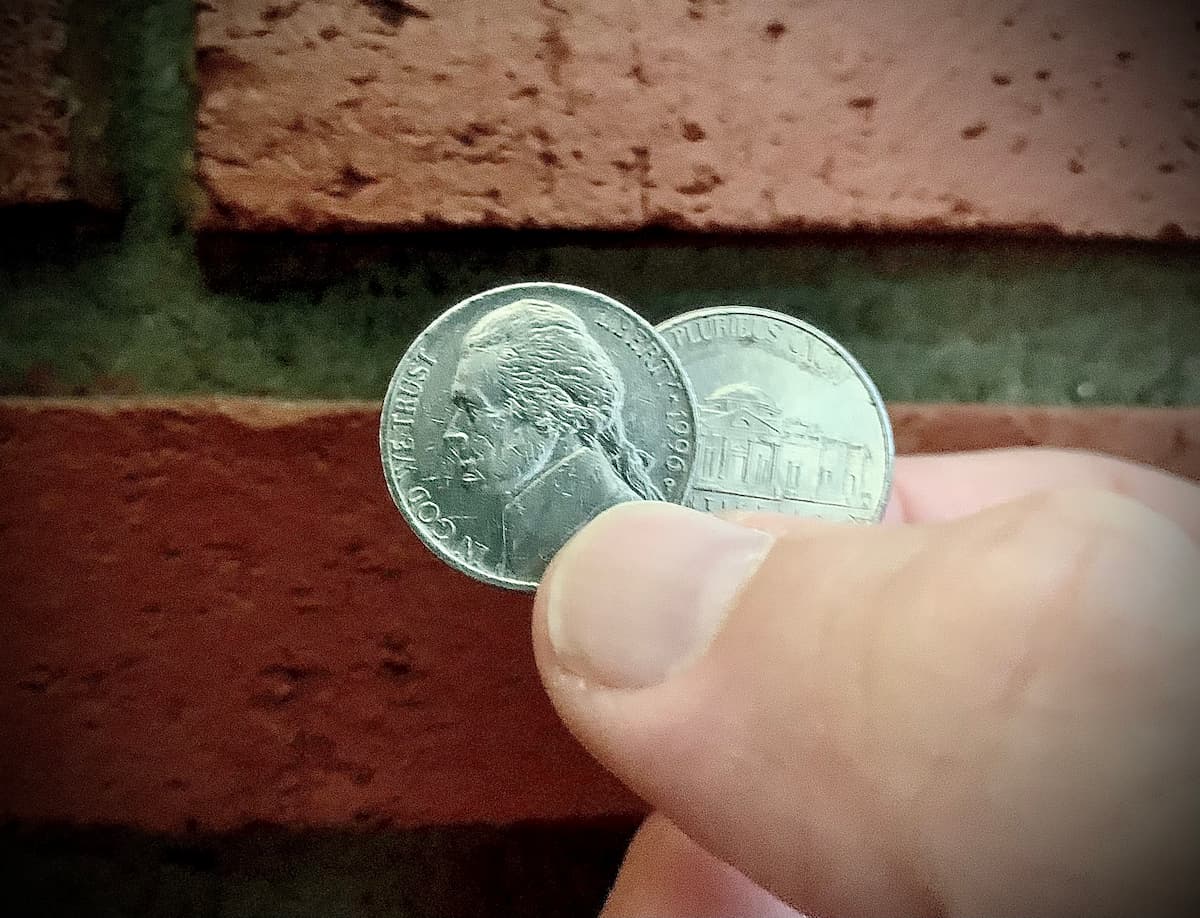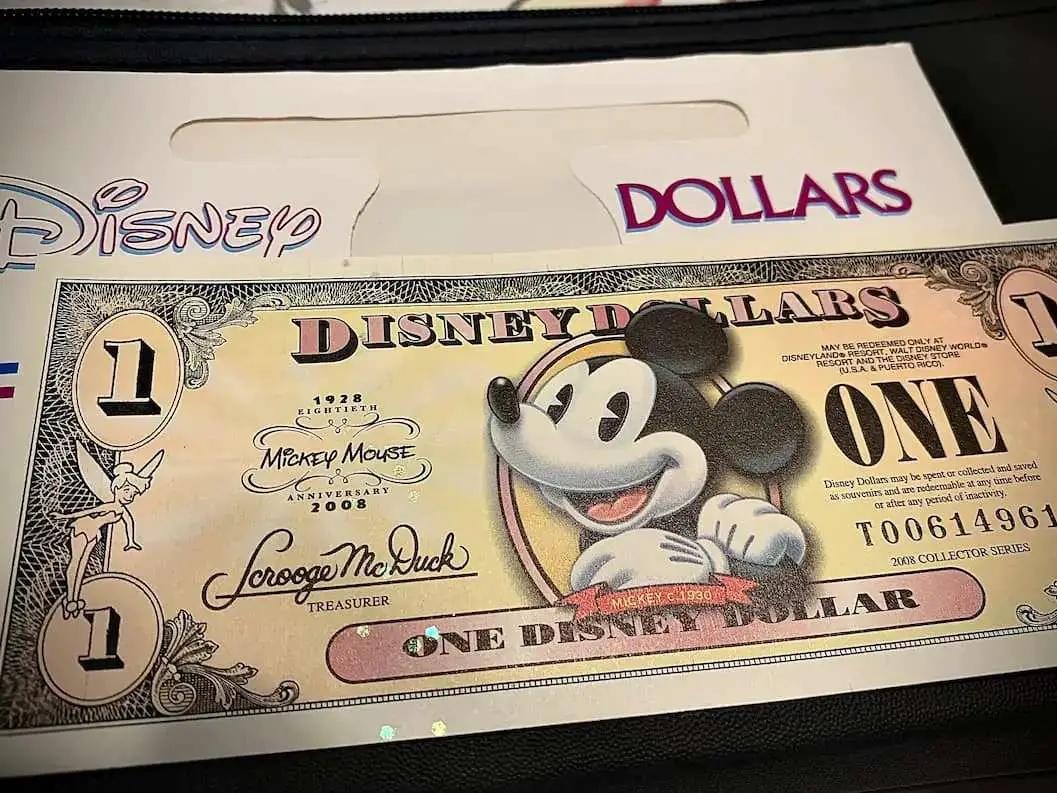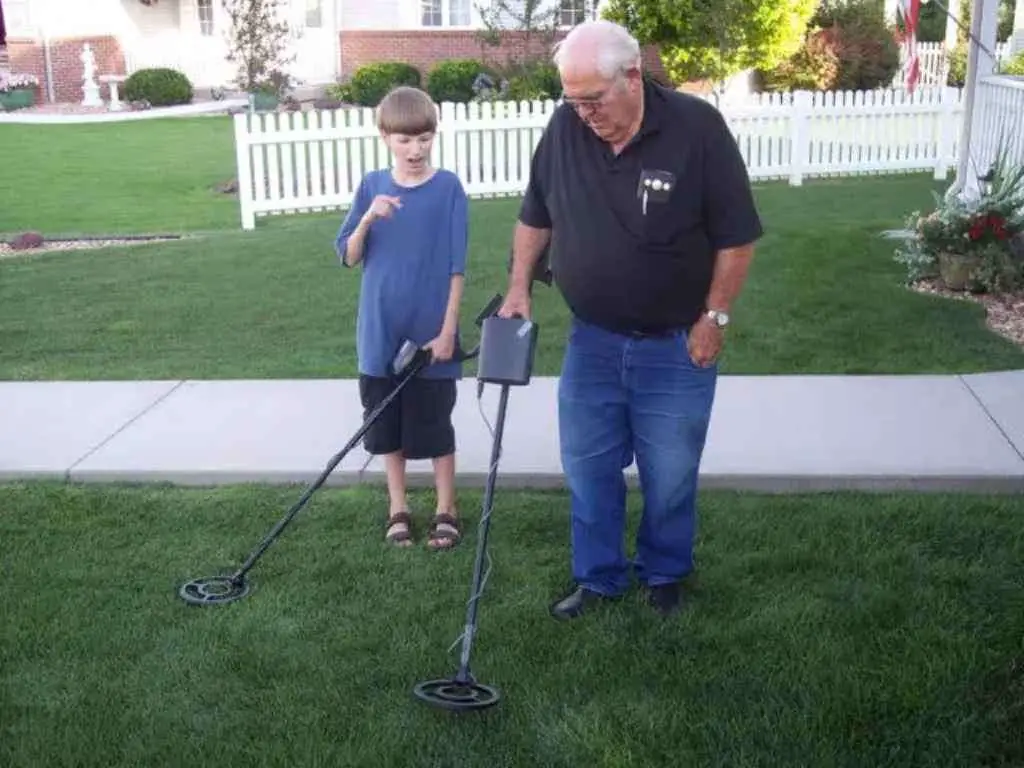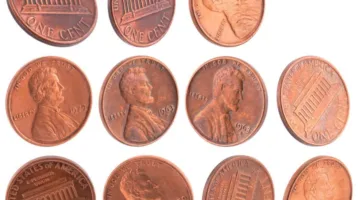
We get a lot of questions about rare pennies — including these: 1943 wheat penny, 1943 steel penny, 1943 silver penny, 1943 Lincoln penny, 1943 copper penny, and 1943 penny value.
Geesh… I guess you all have a bunch of 1943 pennies in your possession!
What follows are several rare U.S. pennies that you should hold onto if you ever come across them in loose change or in an old coin collection.
9 Rare U.S. Pennies
Let’s start with the 1943 penny that everyone asks so much about…
#1 – Rare 1943 Penny
Many years ago, one 1943-S copper penny sold for about $60,000 dollars at auction — much more than the $10,000 to $20,000 they used to take at auction.
Today, a typical 1943 copper penny sells for more than $100,000.
A few 1943 pennies are rare and valuable — especially the ones made of copper!
To find out if your 1943 penny is made of copper, use a magnet:
- If the coin sticks to the magnet, then your penny is made of steel — so it’s not worth much.
- If it doesn’t stick to the magnet, then it may be a true copper penny and it could be valuable (depending on its condition and other factors).
Here’s how to tell if your penny is made of copper or zinc.
Only forty 1943 copper-alloy cents are known to remain in existence. Coin experts speculate that they were struck by accident when copper-alloy 1-cent blanks remained in the press hopper when production began on the new steel pennies.
– US Mint
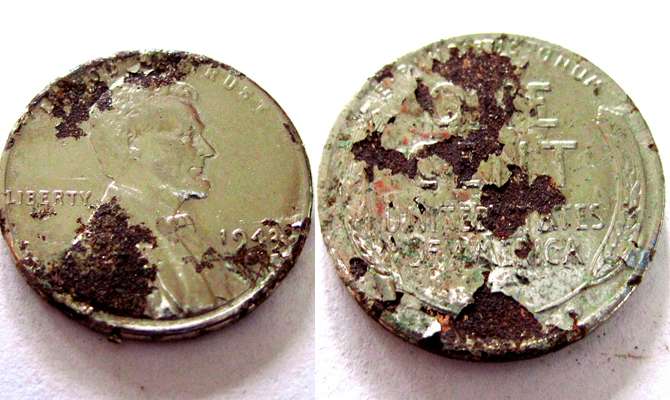
#2 – Rare 1974 Penny
The U.S. Mint struck more than 1 million aluminum cents in 1974 as test coins. The 1974 aluminum penny was immediately recalled for melting, and more than 1 million of them were destroyed. However, there is an untold (small) number of unaccounted 1974 aluminum pennies still out there today.
– Coins Guide
#3 – Rare 1955 Penny
Some 1955 pennies will have you seeing double! A doubled die coin is one of the most popular types of error coin varieties. The 1955 doubled die penny was even mentioned in a Stephen King novella called A Good Marriage, and was a plot device in the 1989 ‘Weird Al’ Yankovic movie UHF. The 1955 doubled die penny is worth around $1,500 and up.
– U.S. Coins Guide
#4 – Rare 1909 Penny
The first Lincoln Penny was struck by the U.S. Mint in 1909 to commemorate the 100th anniversary of Abraham Lincoln’s birth. It was the first circulating coin to feature a real person instead of the allegorical Lady Liberty. Lincoln cents were minted from 1909 through the present time, and it was the first cent to have the motto “IN GOD WE TRUST”. The Lincoln cent was introduced to commemorate the 100th anniversary of Lincoln’s birthday, and the early pennies 1909 through 1958 were referred to as wheat pennies.
– Wikipedia
#5 – Rare 1877 Penny
The 1877 Indian Head penny is one of the scarcest coins of the 19th century. It is also one of the rarest Indian Head pennies and serves as its popular key date. The 1877 penny is worth $700 or more.
– Coins Guide
#6 – Rare 1856 Penny
The inaugural small cent, the 1856 Flying Eagle cent had a mintage of only about 2,000 (more than half of them were proofs). The addition of an 1856 cent in any acceptable condition is a prudent buy. The coin has seen steady appreciation over the long term, being that an 1856 Flying Eagle cent is “necessary” to complete a small cent collection, but is available only in extremely small quantities. Buy only from reputable sources, as many 1858 Flying Eagles have been altered to appear as 1856.
– Rare Coins
#7 – Rare 1844 Penny
A “Braided Hair Large Cent” was just an everyday penny back in 1844. If it is circulated, it is probably worth between $7 and $80.
– Professional Coin Grading Services
#8 – Rare 1793 Penny
The most expensive U.S. penny is the 1793 Sheldon NC-1 Chain cent. The chain’s 15 links surrounding the words ONE CENT represent the unity of the 15 colonies extant in the U.S. at the time. Fewer than 2,000 of these expensive pennies survive to this day. Five varieties of the Chain cent were minted before its discontinuation. After Dr. William H. Sheldon (author of Penny Whimsy), these varieties are referred to as Sheldon 1-4 and NC-1. Designated as non-collectible, NC-1 is the rarest of these varieties — only 4 are known to exist today. With an estimated value of $275,000, NC-1 is not only the rarest, but also the most expensive penny.
– The Most Expensive Journal
#9 – Rare 1792 Penny
This chocolate-colored penny, the 9th known example of its type, bears the date 1792, an inscription “Parent of Science & Industry: Liberty” and the likeness of a woman’s head representing Miss Liberty.
– NBC News
How To Find The Value Of Other Pennies
Here’s how to find the value of any U.S. penny quickly:
- Check online – Our two favorite resources for coin values and coin prices are:
- Check a price guide book – We talk a lot about the different coin price guides, but our all-time favorite is:
More About U.S. Pennies
Here are some of our other articles to help you learn more about your old pennies that might be rare and valuable:
I like to help people find unique ways to do things in order to save time & money — so I write about “outside the box” ideas that most wouldn’t think of. As a lifelong dog owner, I often share my best tips for living with and training dogs. I worked in Higher Ed over 10 years before switching gears to pursue activities that I’m truly passionate about. I’ve worked at a vet, in a photo lab, and at a zoo — to name a few. I enjoy the outdoors via bicycle, motorcycle, Jeep, or RV. You can always find me at the corner of Good News & Fun Times as publisher of The Fun Times Guide (32 fun & helpful websites).


